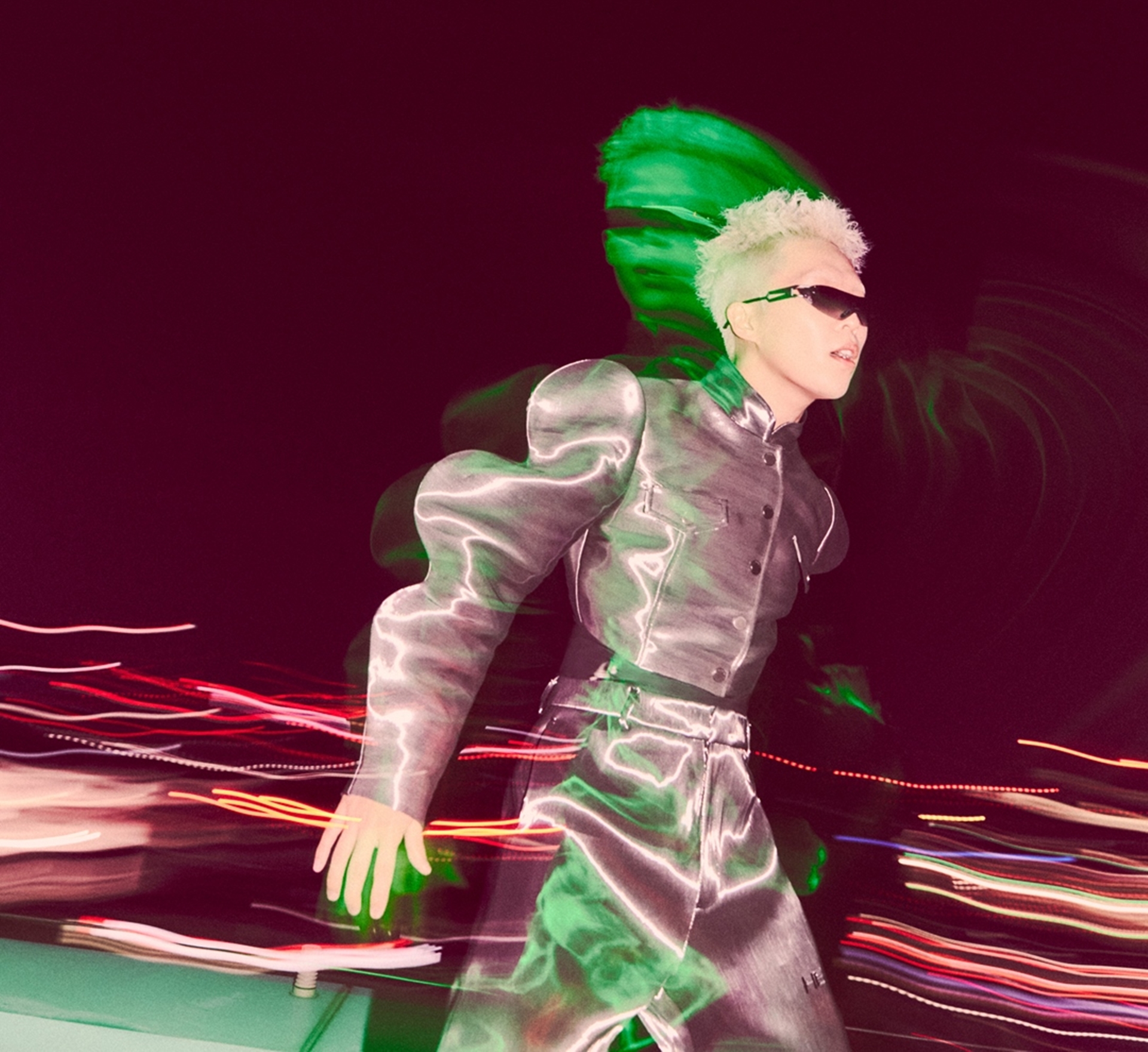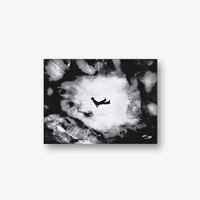
REVIEW
With [ERROR], LEE CHANHYUK shows he can blossom
A look at the AKMU member’s debut solo album
2022.11.07
Credit
Article. Kim Doheon (Music Critic)
Photo Credit. YG Entertainment
He used to be known as a part of AKMU—winner of a popular audition program, a breath a fresh air in the pop music scene with his sister, SUHYUN; a man with three studio albums, countless singles and a mini album under his belt, all revealing his honest approach to music and his inimitable personality. That man is now lying in the middle of a dark crosswalk. As a siren wails out, a crowd and their flashing cameras gather around, and watching the chaotic scene without a word is the man’s spirit. Above the road separating this world from the next, his expression—laughing? crying?—is impossible to read beneath pointed sunglasses and blond hair as he pulls a Superman and flies off into the night.
[ERROR], LEE CHANHYUK’s debut solo album, is a concept album about his own demise, throwing past labels like AKMU and LEE CHANHYUK to the wind and wholeheartedly rejecting the ordinary. LEE was known for his far-from-typical image before he ever released the album, running a YouTube channel where he manipulates images of everyday life to produce video art and always showing up to events like Korea Sings with his unique sense of fashion on display. Everything he does when performing the lead single, “Panorama,” live suggests a desire to escape in an explosion of emotion. He stays tight-lipped when interviewed, and when he’s on stage, he turns his back to the audience to sing, even shaving his head during one performance. We lose sight of the LEE CHANHYUK of old we knew as we watch him undergo different forms of death and resurrection—he himself at the wheel as he runs over the “AKMU kid” who was once “crossing at the green light right” in the song “Eyewitness account.”
LEE has a history of creatively imagining himself facing the end of his life in precarious situations, even while making music as part of a duo. Images of death are found in the underlying theme of “Fish in the Water” that continues throughout AKMU’s third album, SAILING, and in the song “BENCH (NEXT EPISODE)” which provided the main idea for LEE’s new solo album. [ERROR], however, represents a more fleshed-out exploration of the theme. The album consists of 11 tracks that follow a linear narrative beginning with a car accident and followed by a loss of consciousness, the singer’s dying breath and, finally, his own funeral. The story organically moves from when he arrives at the hospital half conscious in “Siren,” reflects on his “life [with] nothing left” in “Panorama” and makes his tragically young departure from the world full of despair, regret and remorse as the faces of family, friends and lover appear before him.
-
 ©️ YG Entertainment
©️ YG Entertainment
Keeping the gripping story moving is [ERROR]’s solid soundtrack. Each song on the album, produced with proven partners MILLENIUM and SIHWANG, is musically crafted around its own vision while keeping in line with the overall narrative, breaking from the expected sound as suits the theme, and eventually making each track into a dramatic, 21st-century, hymn-like anthem. The album can be split into three parts: The first opens with the guitar in the intro to “Eyewitness account”, followed by the frantic tones of “Siren” and 1980s new wave stylings of the otherwise very different songs “Panorama” and “Time! Stop!” The second section of [ERROR] starts with “If I can’t go see you right now” and ends on the calmer “Castle in my dream,” while the last two songs of the album, “A DAY” and “Funeral hope,” bring LEE’s story to a solemn close. [ERROR] starts out with an urgency that gradually gives way to release as it moves its way toward a calm look back on life in the finale.
Every song off the album is a testament to LEE’s ability to compose songs built around simple chord progressions and catchy melodies in a wide variety of genres. Unlike the accompanying live performances, the language and melodies he uses in [ERROR] are relatively understated compared to his work under AKMU, and his extraordinary talents poke through everywhere like a pocketful of pins. It’s also easy to hear echoes of pop songwriting greats like Byun Jin-sub, Shin Seung-Hun, Yoon sang, Kim Hyun-Chul and Shin Hae-chul in the elegant soft rock tracks “If I can’t go see you right now” and “Goodbye, stay well,” as well as the smooth ballad “What the.” There are unmistakable traces of his winning sound from his amateur days as half of AKMU in the 2010s in “Missed call”—clocking in at five minutes but over too soon—and “Castle in my dream.”
And then there’s the closing track, “Funeral hope.” Viewed through the eyes of a redeemed soul, LEE’s spirit watches his own funeral, assuring himself of a life well led and without regrets in this gospel-flavored song. Here LEE offers a condensed version of his upbringing under missionary parents and the success of his 20s and takes his brave first steps into the unknown of whatever comes next. The song is a touchingly beautiful conclusion to [ERROR]’s death narrative. Even if he made an error by rejecting and rebelling against the demands of the world, he’s rescued in the end when he reveals his true self and desires without hesitation, after which he has finally “entered the kingdom of dreams.”
[ERROR] stands as proof of LEE CHANHUK’s power as an independent musician. This fascinating solo debut burns with all the fierce competitiveness of a young artist dreaming of growth and striving to evolve as he pushes himself into extreme and imaginative situations. LEE chooses the unconventional approach of allowing himself to be killed off rather than following the safe path he had already built for himself in order to live on his own terms, and he does so with a solid background as a talented songwriter and confidence in his own career. I’m with LEE’s mother, who gave her blessing after first hearing the album, and the moment when everyone who raised their voices up like a choir to sing hallelujah at this release: When the world seems so difficult and bleak, “Do whatever you want, CHANHYUK.”

Weverse Shop

LEE CHANHYUK 1st SOLO ALBUM [ERROR]
Copyright © Weverse Magazine. All rights reserved.
Unauthorized reproduction and distribution prohibited.
Unauthorized reproduction and distribution prohibited.